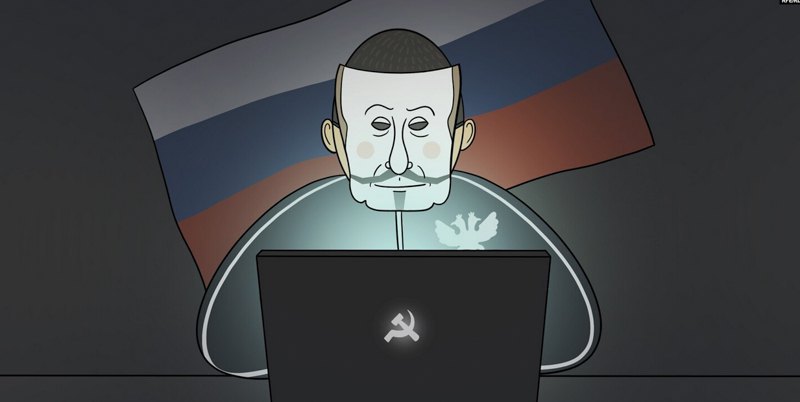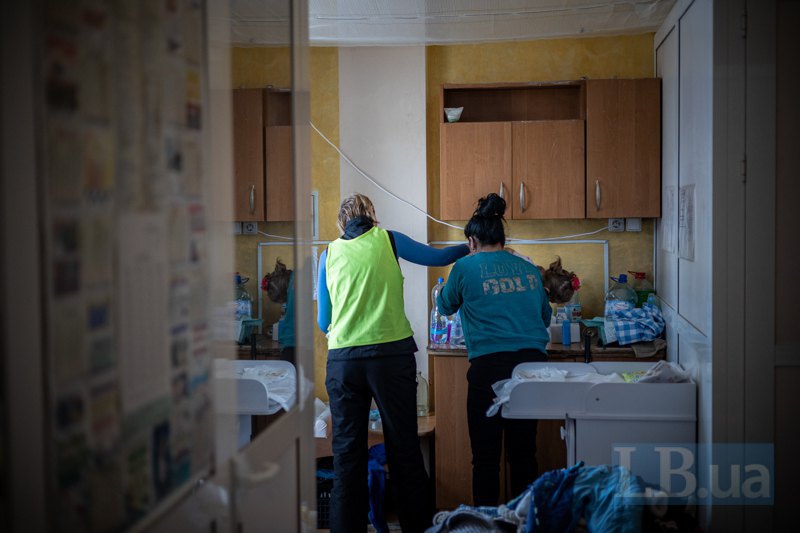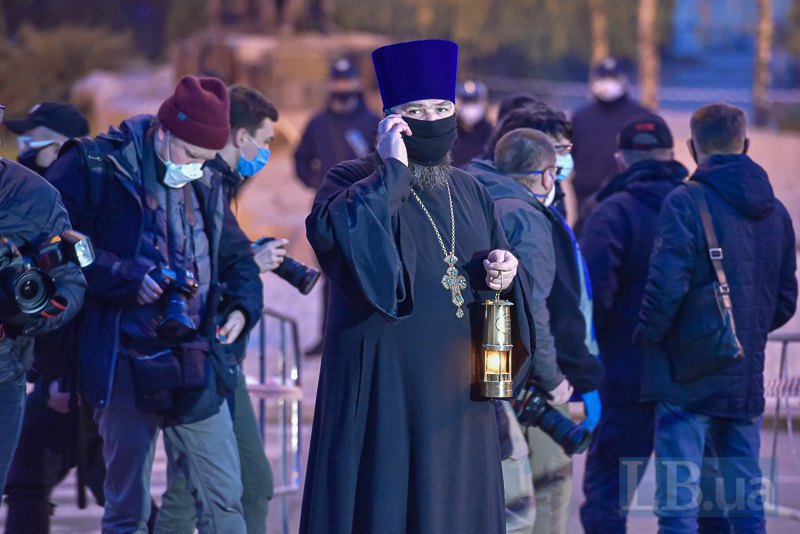
How is a level of vulnerability of the Ukrainian society and Russia's information counterattacks could be assessed in a context of the current agent war? In the same time it is important in this matter to avoid a patriotic criticism of the vigilant fellow citizens.
It is quite simple to manage individual and social group behaviours. A human being was originated from a monkey (which was also created by God), however, a social person behaves like a frog: it acquires ambient temperatures. Political technologists and experts of social engineering are well aware of that phenomenon and frame their cynical technologies into some likable ideological narratives. Their task is extremely simple and purely technical: to bring a voter to a ballot box and force him/her to throw their ballot inside the box. Political campaigning is a manipulative technology; it is not a talk about ‘changing beliefs’. Periodically, the Ukrainian society used to face that, experiencing a sequence of shock-depression-bargaining-acceptance. All subsequent cries of a ‘voter deception’ were heard either from political losers or from incorrigible romantics, which are basically the same thing.
A scale of influence could be divided into three clusters: national, group and individual. A multi-year Estonian-Ukrainian program ‘Resilient Ukraine’ began to conduct sociological research, focus groups and in-depth interviews before the Russian-Ukrainian War, 2022. The program findings warned: ‘Significant gaps between the Ukrainian state and Ukrainian civil society hinder effective mutual collaboration. Those gaps in values, goals, motivations, opportunities and mutual communication will weaken the Ukraine's overall resilience to the challenges of internal and external security. It will make impossible for the Ukrainian civil society and public authorities to interact at a new level’. Those five gaps between the government and society have been and remain as the major enemy targets. Banal, socio-political contradictions via information and agent influences are shown in a hostile information space as catastrophic and insurmountable. A natural crack is depicted by the enemy as an abyss and ‘betrayal’.
A main object of any information attack is human motivation. This is a Ukrainian major natural wealth, a true scale of which was not suspected by the enemy. If only motivation could fight, the Ukrainian Armed Forces would already be drinking green tea with the Chinese on a demarcation line somewhere beyond the Urals.
Officials always feel insecure when they are required to be open and transparent about their activities. The current war created a convenient argument for them in a favor of austerity which sounded like an ‘out of time’ phenomenon in social networks. Civic organizations with their pre-war demands for a state structures’ accountability to civil society are currently quite easily interpreted by the authorities as ‘useful idiots’ who involuntarily help the enemy.
The enemy creates two mutually exclusive narratives. The first one is arrogant and corrupt Ukrainian civil servants who want to steal the Western financial flows in Ukraine. The second narrative is loud and illiterate activists with inferiority complexes who constantly push themselves into business they do not fully comprehend. The special people watch and gradually raise a degree of a mutual resentment. They use the most sensitive themes: (1) a theme about the Ukrainian military and (2) a growing number of war victims due to a criminal activity or inaction of antagonist groups. There are no completely fictional topics in effective propaganda. The Minister of Internal Affairs states that Kyiv and Lviv are the leaders in a theft of humanitarian aid. The Deputy Minister of Defence gently reminds that a patriotic activity of ‘useful idiots’ on social networks can have negative consequences for the country's defence capabilities. The enemy wraps a core of such realistic events in appropriate emotions similar to a lead core of a bullet which is packed in a brass shell for a greater impact.

The next topic is what happens to social groups. Millions of people have fled their homes and possibly their country. Most of them are returning, but looking for other places to live permanently. A social and communication environment for them will be completely different and a psycho-traumatic situation in contrast to 2014 has spread throughout the country. A personal grief of each person, regardless of its circumstances, is experienced by many as the greatest tragedy which is projected on the rest of society. There is good news: a work of the enemy according to old patterns loses its effectiveness. Pre-war algorithms of intergroup interaction and, consequently, previous opportunities for destabilizing society do not exist anymore. There is a need to create new ones.
We used to see an unsuccessful attempt to sway around a language conflict. ‘Bad’ migrants against ‘good’ locals and vice versa theme also stuck. Mutual incitement of those, who remained to those who left, is also hopeless, especially with the current strong dynamics of return home. This does not mean that such neurotic plots do not exist. But so far they are encapsulated in the individual domestic episodes.
Carrying out large-scale information strategic operations is a very ungrateful business. Nobody knows for sure how a society develops. Basic science once faced a fact that within a framework of the natural science paradigm there are phenomena that can only be stated. They are impossible to explain and predict. Efficiency of strategizing reminds a locomotive. There is a lot of noise, smoke and dirt further away. An elephant and a few sages could be transported somewhere else but not far away. Either the elephant dies or the sages will get mad.
A domestic political competition, which is resuming in Ukraine, on the one hand, is an evidence of a return to a normal political life. On the other hand, it is a good chance for the enemy to provoke a ‘friendly fire’ and there are always problems with this during the war. That is, under a competition of influences ‘for something-there-in power’, a Russian agent network will hem its conspiratorial background. The simplest method is a disproportionate dramatization of a scale of the phenomenon. It is not difficult to turn a long-standing mutual dislike of two or three high-ranking officials into a threat of a coup d'etat and with the help of other agents to intimidate officials so that they make ‘the only right decision’. There are other schemes, but a decently planned operation is never limited to one or two moves.
A personal factor is important. People are in a state of a chronic stress. I would not exaggerate a scale of their disorientation and mal-adaptation. It is currently about twenty per cent, which is also a lot for a potential hostile manipulation of psycho-traumatized people. However, the enemy can not achieve a state of ‘controlled chaos’. What happens to consciousness of those twenty per cent, where are those ‘soft spots’ for a probable recruitment and their use ‘in the dark’?

I did not just translate an expression ‘monkey mind’ word to word as palm trees do not grow here. In zoos, people mostly look at a monkey’s red butt with a Freudian interest, until a monkey gets upset and throws a piece of its dump at them. Ukrainians know about a monkey’s behaviour from fairy tales and cartoons.
A term ‘monkey mind’ came from Buddhism as a definition of a senseless human hyperactivity, which now fits very well with a description of social networks. Networks, in turn, perfectly reflect clips, mosaic and mythologized thinking of an average civilized person. Calmness, which in the times of the Buddha was considered as a higher virtue, looks like a suspicious deviation and a symptom of mental retardation at a background of current general neuroticism. A neurotic social culture during the war increases and disorients people. People chaotically try to expand boundaries of their communication to get more information about the possible threats and ways to avoid them. People's willingness to ‘drink’ from any source of information turns into a mass poisoning from sources of hostile disinformation.
When I spoke earlier about, probably, tens of thousands of enemy agents in today's Ukraine, it should be clarified that it was not a monotonous flock of complex idiots with smart phones who photograph and send to the enemy some landscapes of strategic importance. It is just an agent nonsense, which forms a really broad basis of the pyramid of hostile influence. But if we talk about effectiveness of those influences, we visually imagine an inverted pyramid, where a quantitatively smaller but deeper and socially higher infiltrated agent network causes a greater destructive effect on the national security. A recruitment process usually begins with identifying people who may have an access to sensitive information or important social or military-economic processes. This person can be ‘guided’ for a certain period of time before the first contact takes place, access is made or ‘reservation’ secured. There are many examples when people themselves offer their collaboration with the enemy. Preliminary research is being conducted on an avoidance of potential agent’s ‘duplicity’. Once it becomes clear that a person has a potential access to information, a recruiter considers why a formally loyal person may be willing to betray. A set of reasons is a classical motivation: money, persuasion, compromise and vanity with an additional analysis of behavioural traits of a person who is prone to collaboration. An observation of the above mentioned reasons sometimes identifies people with potential access to information but does not indicate the ways to approach them. An agent could offer an approach through the third country (‘false flag operations’) or through unknown resources. Recruiting people from civic organizations is much more difficult. People in such groups usually know each other for many years. ‘Agents of access’ to civil society, to activists, to public organizations use special methods of communication because such groups are fundamentally open and mostly naïve due of their poetic and mythological attitudes.

How can recruitment be classified in general? A following list is not complete, but proposes a couple of examples.
The recruitment groups might consist of:
(1) Civilians with an access to military technology and military affairs in general (including civilian relatives of military servicemen)
(2) Individuals who have an access to informed and influential people. It is a proxy effect in which a key person receives truthful but filtered information, compiled in such a way that makes a strategically beneficial to the adversary strategic decision. These are very valuable people who are called ‘access agents’. They do not have a personal access to materials of intelligence value, but maintain contact with those who have. Such people could be quite simple, such as plumbers, massage therapists or a car mechanics, but they might regularly deal with the government officials who have an access to classified materials
(3) Persons in intelligence agencies. A situation here is quite tragicomic. An ex-General Naumov, who apparently escaped with, probably, an entire SBU database was responsible for SBU’s internal security is the most recent episode in a number of such characters, starting (or maybe not starting) from Oleksandr Yakymenko, the former head of SBU (2013-2014). I will remind that in 2014 ninety percent of the Crimean SBU employees without serious problems took an enemy’s side
(4) Civil society members. Those are people who, due to their own abilities, rapidly gain an influence on public opinion and can be called up for public service. Targeting such people is based on intelligence information, both from open sources and from agents, who only observe the processes, but do not show personal activity
(5) People from the diasporas. Ideally, a recruit should be located in a country with the highest priority, but in a case of mass recruitment, a country of residence does not matter. They can return to Ukraine with a task or continue their activities in the country of settlement
(6) Church circles. It is not necessarily the Muscovite church, which activities in Ukraine are too hostile. It in fact has received a status of the enemy's legal residence in the Ukrainian society.
(7) Various defectors and asylum seekers. Those can be quite sincere people, to whom an agent comes after receiving an appropriate status in Ukraine
(8) Businessmen, smugglers and organized crime representatives. I would put an equal sign among all those categories in the Ukrainian realities
There are some caveats in which a recruitment process is ‘paused’. It happens when an agent's information contradicts with other information that is considered true. An agent's information appeared in the local open sources. Such information is correct, but too old to be of a practical value. There are some inconsistencies in a biography and a current lifestyle of an agent. There are agent's predictions, which are unsupported by anything but their own fantasies or assumptions.
It is worth to mention that a distinction must be made between the drug addiction and sexual components of recruitment, both heterosexual and homosexual. This, in summary, is a biblical story of Samson, a secret of whose power was successfully used by his mistress Delilah. Those techniques in different countries were called differently: ‘honey trap’, ‘swallow’ or ‘crow. There are dozens of well-known examples of people, mostly from the Cold War, who have been sexually trapped and exposed but hundreds and thousands have remained recruited. There may be other factors, such as true friendship.

Information requests begin innocently, usually asking about some self-evident things so that there is no obvious reason to refuse. Then the tasks become more complicated, but still do not contain the formal signs of a crime. An interaction becomes more sensitive, especially when a curator asks for something secret, but with an explanation that a recruit does not actually betray anyone. It simply ‘helps’ everyone. Here is a turning point, when there is a fixing of a psychological control over the object.
Well, now what to do with it all? In 1947, Jorge Luis Borchks wrote a short story ‘The German Requiem’. He was almost accused in justifying Nazism. Although his conclusion was that when you are dealing with an unprecedented form of immorality, you need to develop a new, more rigid system of your own morality. Ukraine needed a new system of political morality, i.e. a motivation in decision-making, thirty years ago. It did not happen and that is why we are not Poland or the Baltic countries. A candidate status for EU membership, although Turkey received it twenty three years ago, is our political victory of Autumn-2013, which we have won at a very high price. Requirements for that status include a number of urgent reforms, in particular an adoption of a comprehensive strategic plan for reforming the national security sector. No Ukrainian Government had a political will for radical reforms in this area, which remained post-Soviet. Although sabotage has become such a common thing that it is perceived simply as an ordinary part of everyday life.
Such political will is not very visible even now. All statements are just words. It is obvious that radical changes affect the government itself at the level of all its subjects. The numerous public councils that were formed around all power structures after the Maidan were imitations or profanations and were a false release of activists’ drive ‘from the street’.
A ‘monkey mind’ is much more inherent in civil servants themselves than in the Ukrainian society. This means that a pressure ‘from the street’ with requests to participate in the national security system’s reforms will only increase. The more Ukrainian Government declares about a course of stabilization, the more society will talk about change. This is an exact gap in motivation that I have talked about at the beginning.
There is still an obvious pressure from the foreign allies, because there is no friendly intelligence, there is intelligence from friendly countries. That is, current reform requirements are not always the requirements of reforms in our national interests, but in the interests of allies as well.
Hypothetically useful is a creation of fundamentally new counterintelligence structures that would meet the requirements of the time. It is a fair but ‘wet delusion’ of the Ukrainian civil society. Look at what was happening around NABU, SAP and similar structures. A traditional system and protocols of collaboration between current counterintelligence structures and civil society should be radically revised and legislatively expanded following an example of the US ‘Patriotic Act’ after 9/11.
The "Street" is now at a front of the war, but there are people to ask questions on their behalf. It is better for everyone to find answers to those questions as soon as possible.
Agent war, information counter-attack and "monkey mind". Part one
Agent war, information counter-attack and "monkey mind". Part 2








